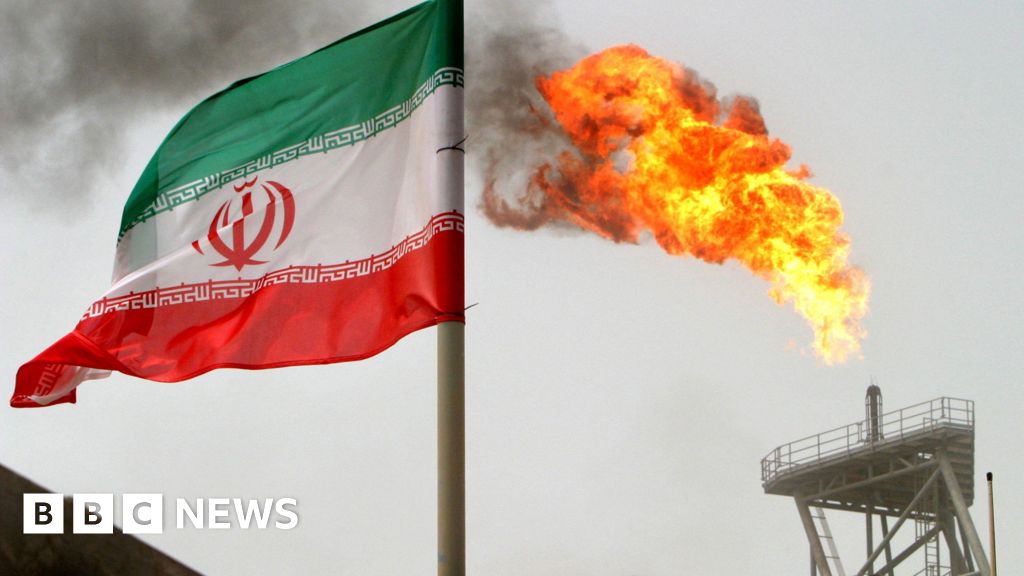- author, Mariko Oi
- role, business reporter
-
Oil and gold prices rose after US officials said an Israeli missile had hit Iran.
Brent crude, the international benchmark, rose to more than $90 a barrel after reports of the Israeli attack, but fell as Iran sought to downplay its significance.
Gold briefly neared record highs, but has since settled below $2,400 per ounce.
There are concerns that the escalating conflict in the Middle East could disrupt oil supplies.
Investors are closely monitoring Israel’s response to Iran’s direct drone and missile attacks over the weekend.
Oil prices initially rose by 3.5%. However, Brent fell to $87 per barrel after Iranian state media claimed that there was “no damage” in Isfahan province, where the explosion had been reported.
A rapid and sustained rise in oil prices risks spurring inflation. Countries rely heavily on this commodity, which is used to produce fuels such as gasoline and diesel.
Fuel and energy prices have been a major driver of global cost of living increases over the past few years.
Randeep Somer, a fund manager at M&G Investment Management, told the BBC’s Today program: “The market’s concern will be mainly about inflation. This will actually lead to more inflation.”
Although the pace of inflation has slowed, Britain remains above the Bank of England’s 2% target, with some economists predicting that interest rates may not be cut until the summer or the end of the year.
“Inflation in the UK remains at around 3.2%, still far from target, but is a cause for some concern for policymakers,” Mr Sommer said.
“We hope that the situation does not escalate further and that the disruption to the market is short-lived.”
That price is well below the highs reached after Russia invaded Ukraine in February 2022, when many major economies imposed sanctions on oil producers.
In the weeks that followed, oil prices reached $125 per barrel, and household utility bills continued to rise.
The price of gold often rises during times of uncertainty as it is considered a safe investment.
Rising tensions in the Middle East have raised concerns that shipping through the Strait of Hormuz between Oman and Iran could be affected.
It is an important transportation route through which approximately 20% of the world’s total oil supply passes.
Saudi Arabia, Iran, the UAE, Kuwait, and Iraq, members of the OPEC oil-producing cartel, send most of their oil exports through the strait.
According to the U.S. Energy Information Administration, Iran is the world’s seventh-largest oil producer and third-largest OPEC member.
Vandana Hari, an energy market expert at Vanda Insights, said the initial spike in oil prices was “an inevitable response to concerns that war between Israel and Iran could escalate again.” .
“Recent events highlight the growing fragility and instability of the situation in the Middle East,” she added.
Stock markets fell as investors reacted to the latest events. In the UK, the FTSE 100 stock index fell 0.5% and the FTSE 250 stock index fell 0.8% in early trading.
In Asia, Japan’s Nikkei Stock Average fell 2.7% and Hong Kong’s Hang Seng Index fell 0.9%. South Korea’s Kospi closed 1.6% lower.

